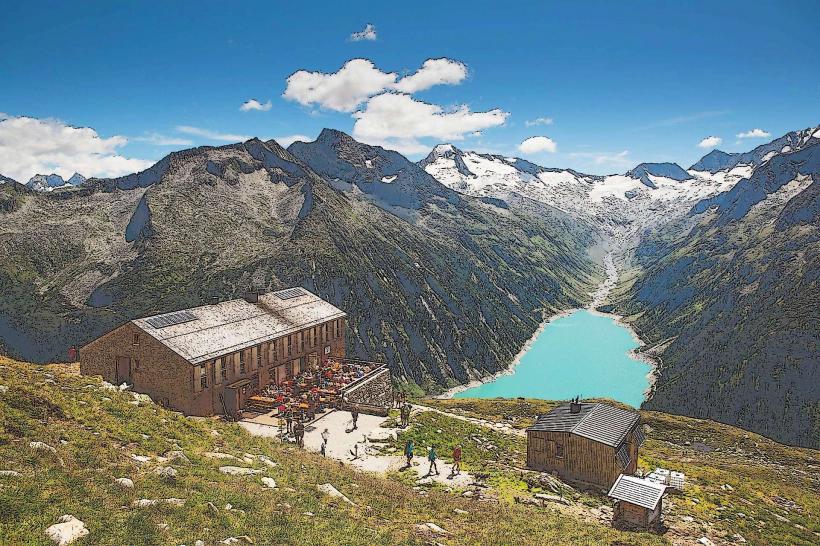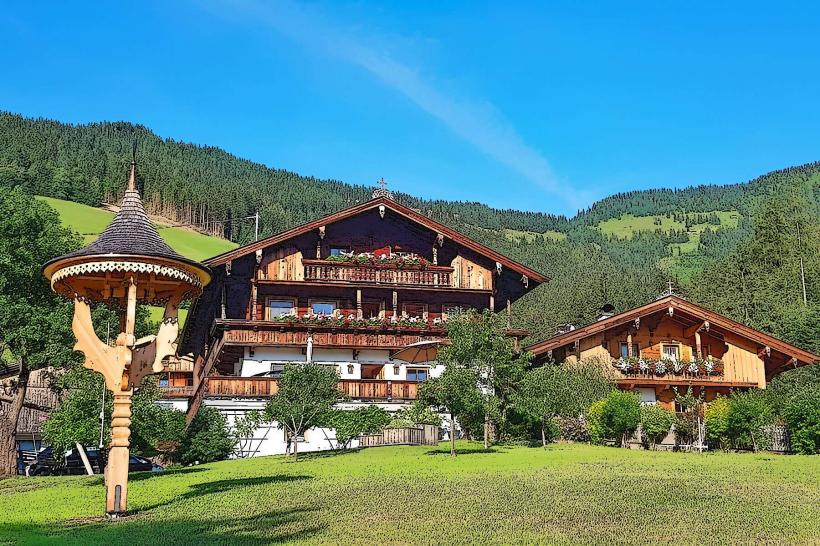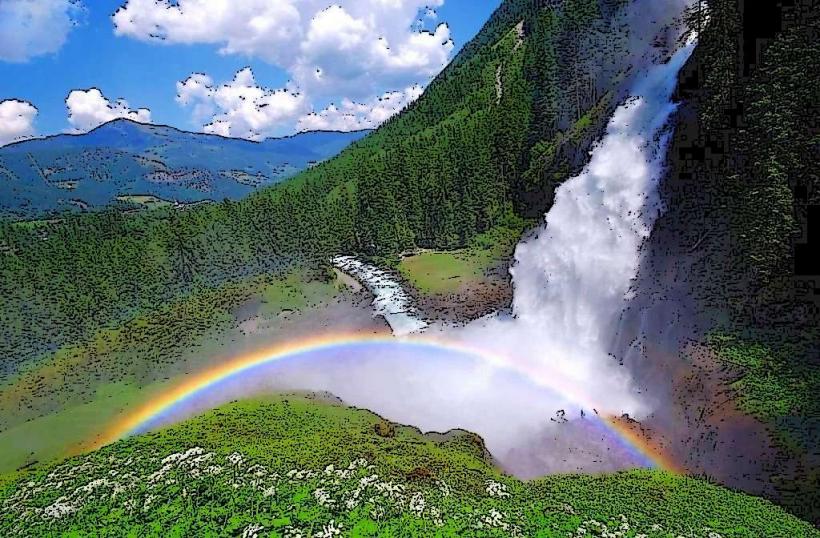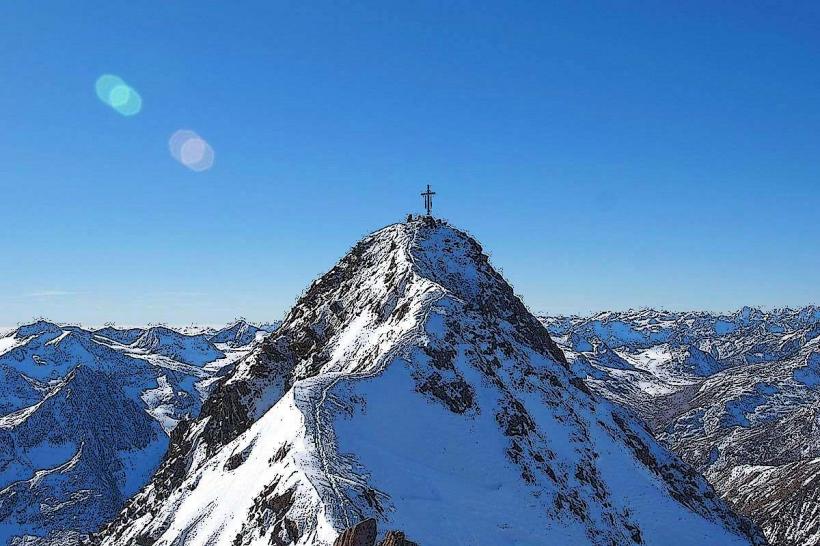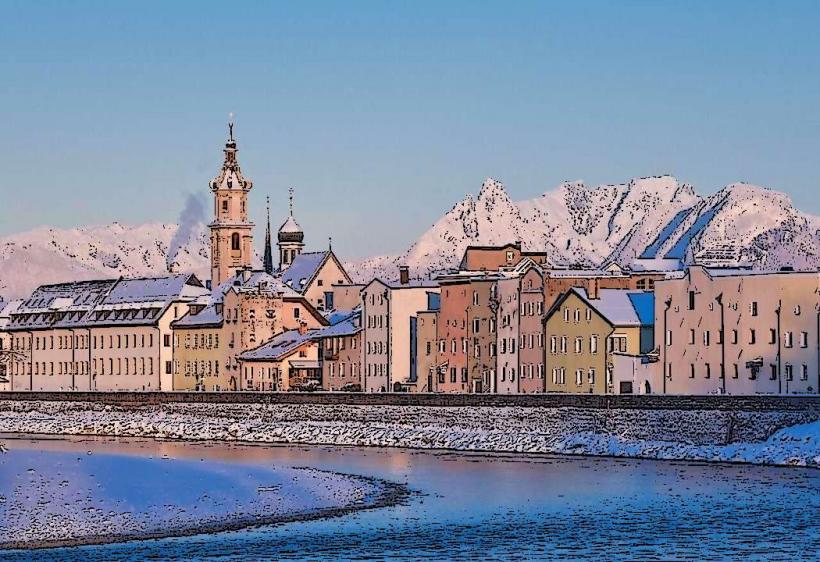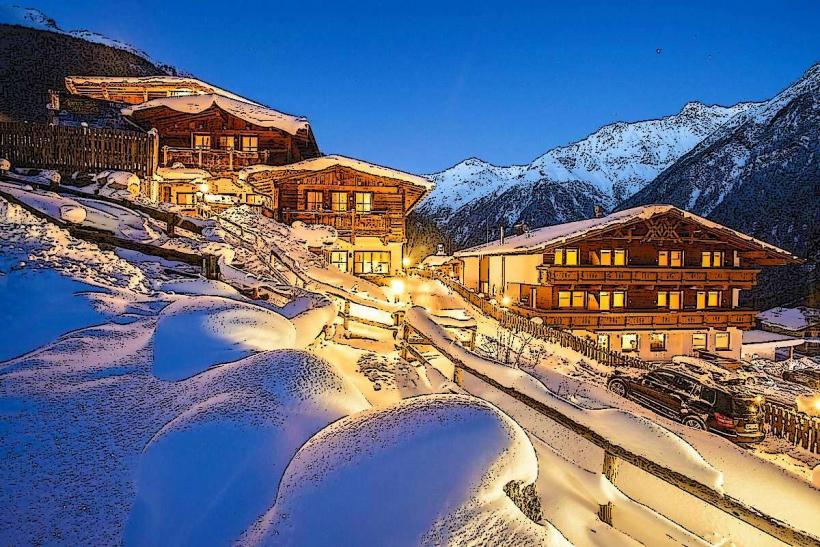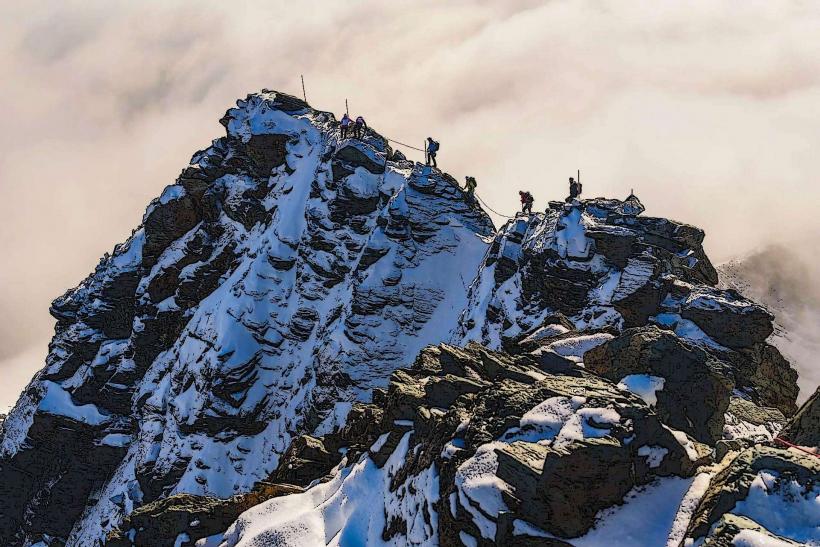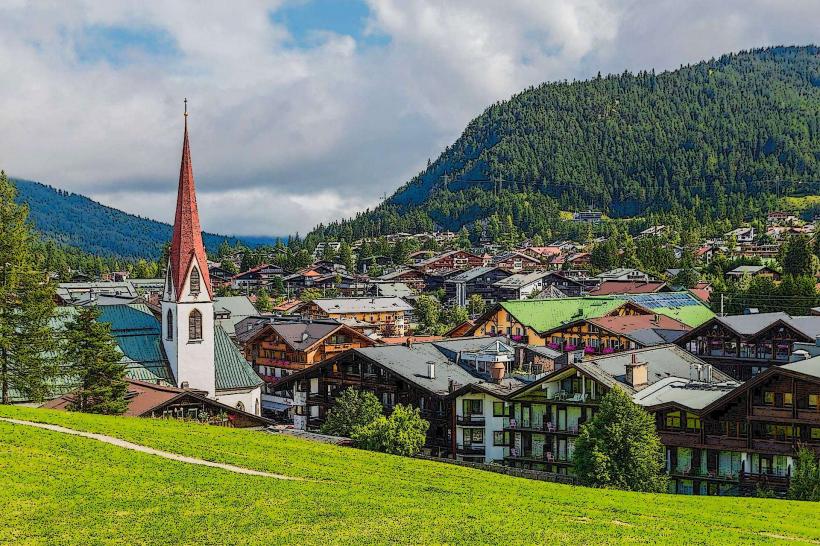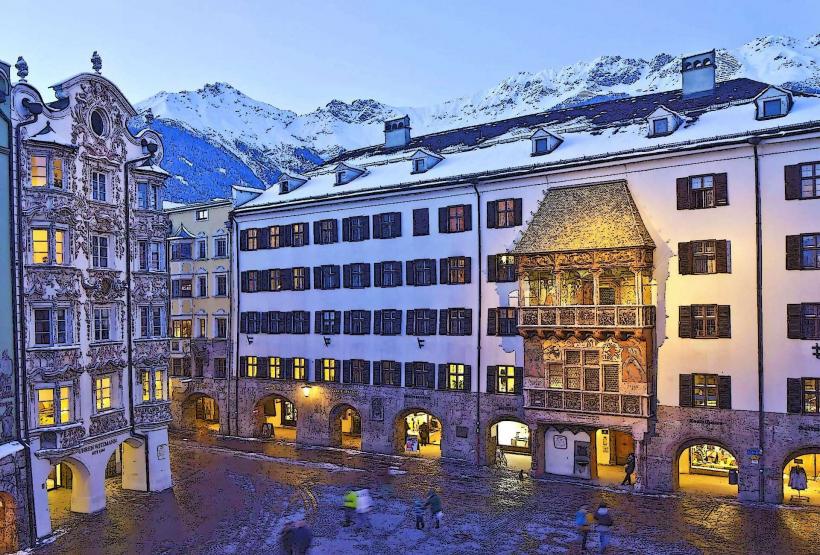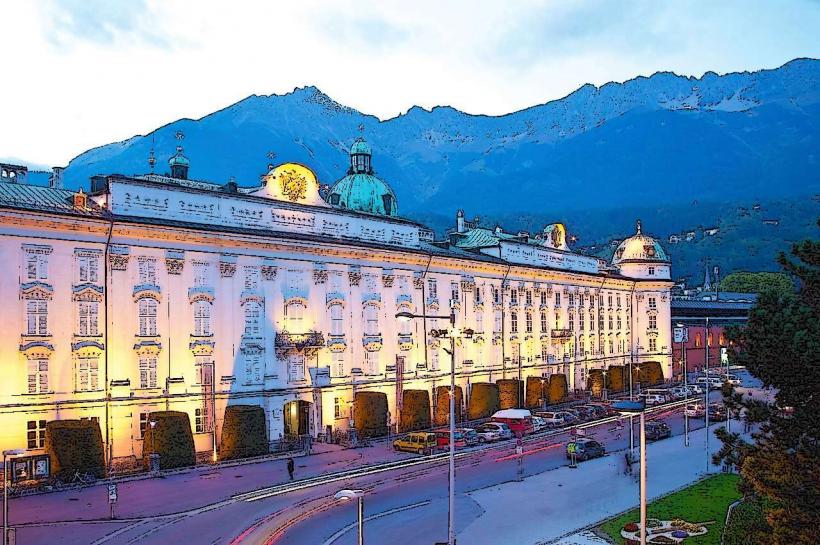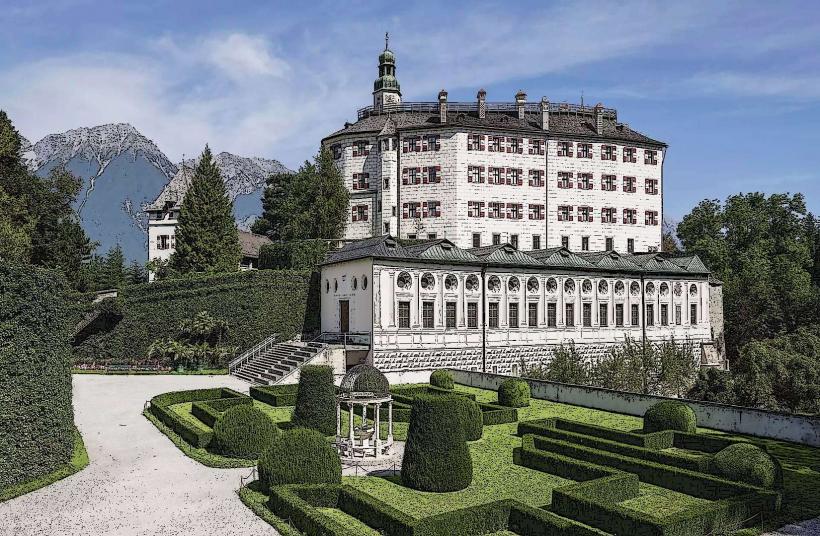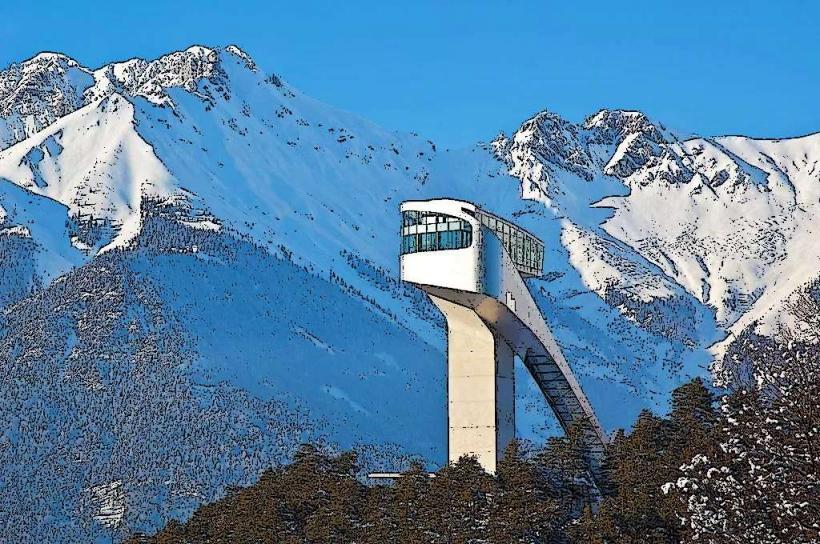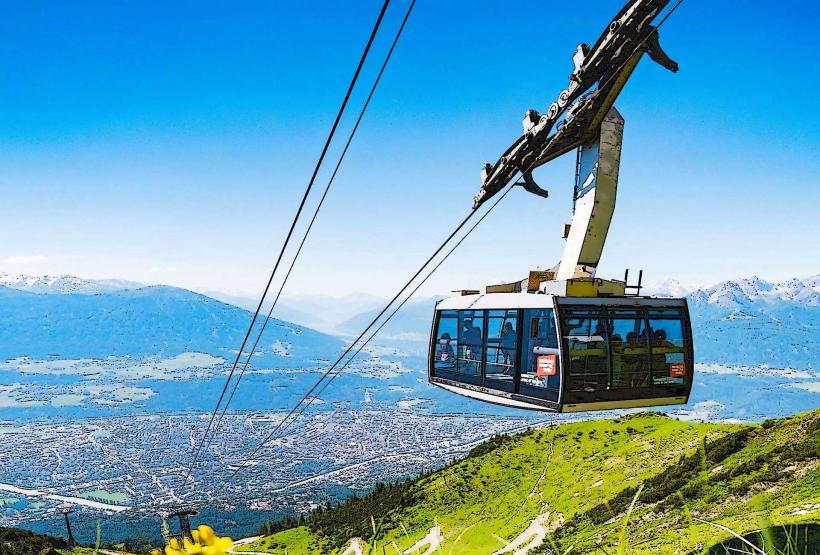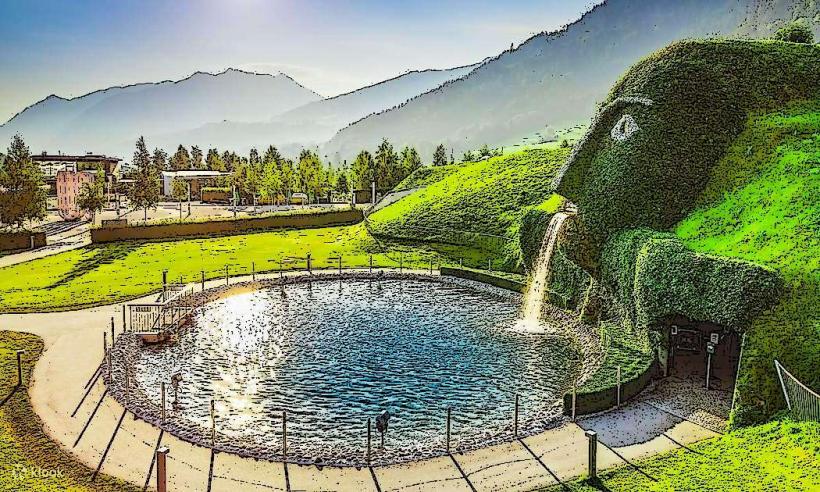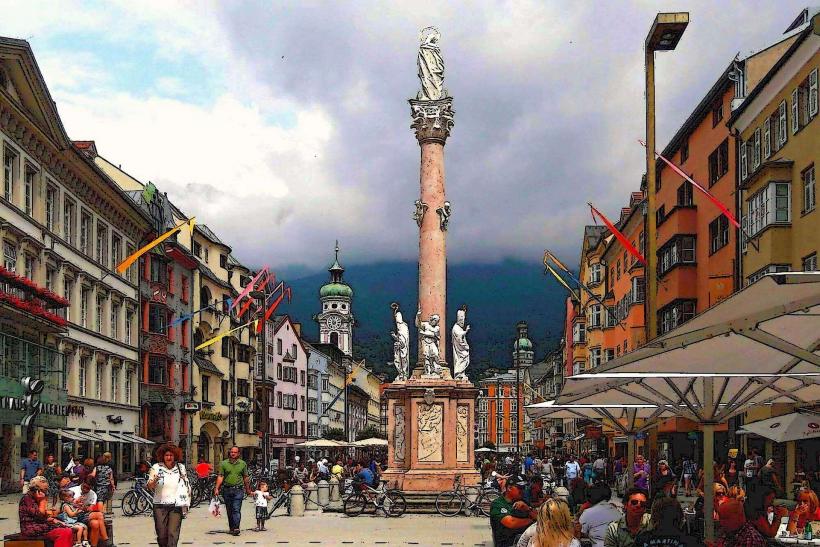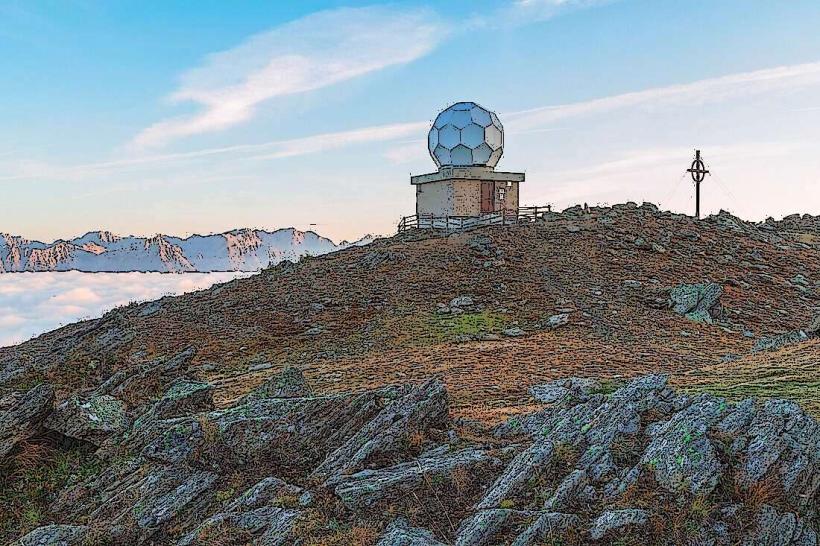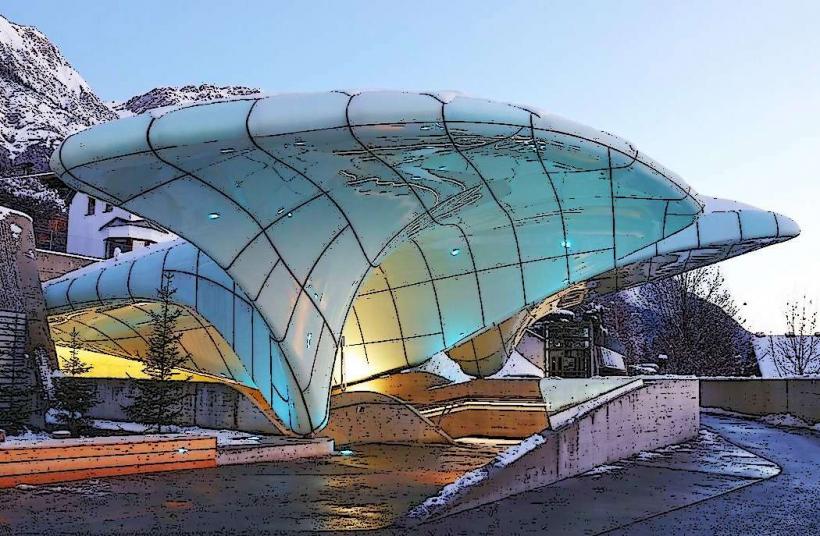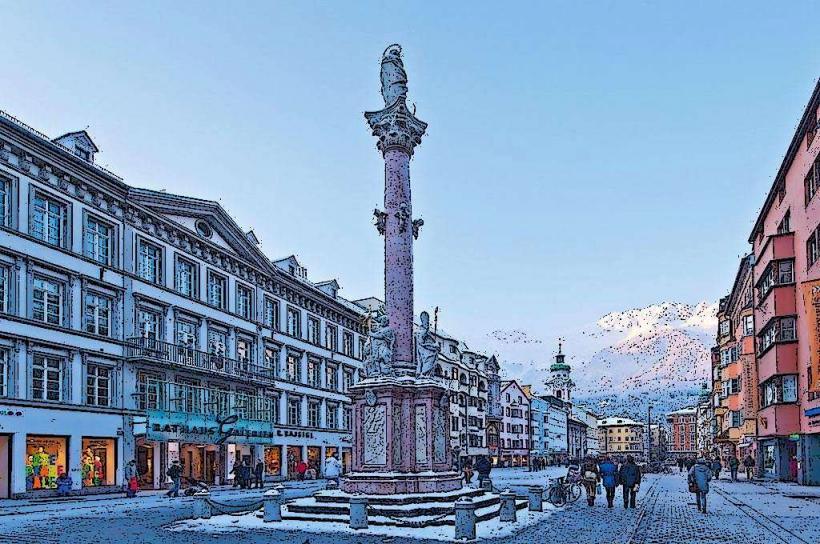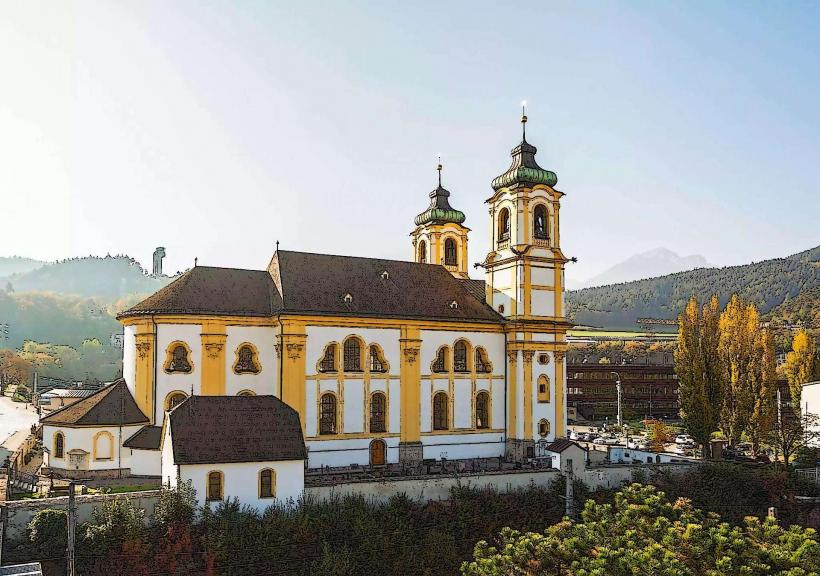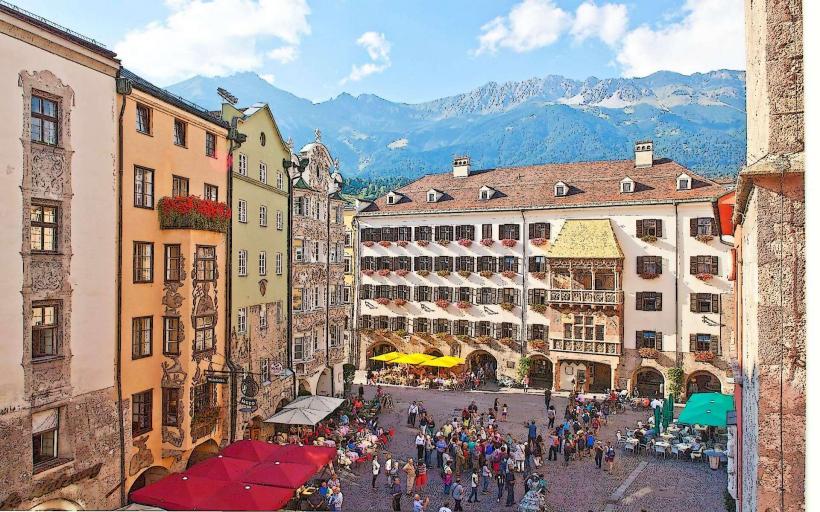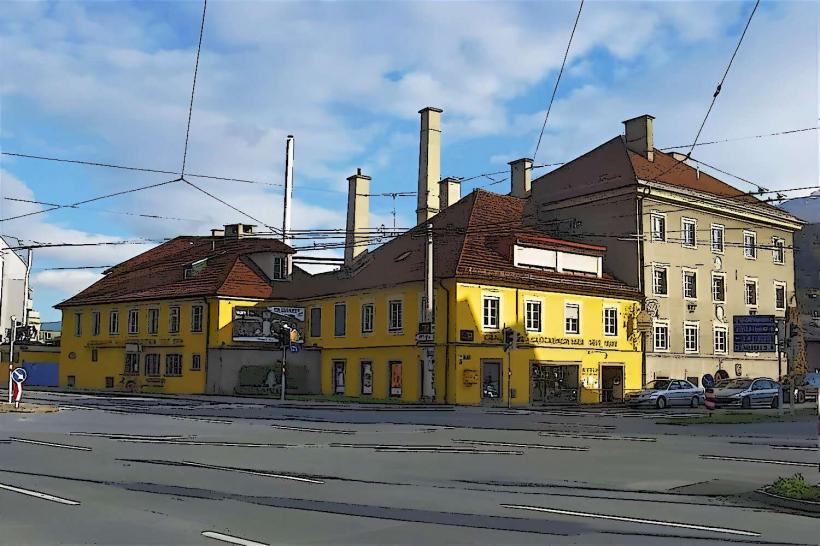Information
Landmark: Grossvenediger MountainCity: Innsbruck
Country: Austria
Continent: Europe
Grossvenediger Mountain (also spelled Großvenediger) is one of the highest and most majestic peaks in the Hohe Tauern mountain range, located in the Austrian Alps in the Tyrol region of Austria. It is renowned for its towering height, stunning glaciers, and its significance as a popular destination for mountaineers and hikers.
Overview of Grossvenediger Mountain
- Elevation: 3,666 meters (12,025 feet), making it the fourth-highest mountain in Austria.
- Location: Grossvenediger is situated in the central part of the Hohe Tauern National Park, straddling the border between the Austrian states of Tyrol and Salzburg. The mountain is part of the larger Venediger Group, which includes several other notable peaks.
Geography and Features
- Grossvenediger is known for its glaciers, particularly the Venediger Glacier, which covers a large portion of the mountain’s upper slopes. The glacier is a key feature of the mountain and adds to the striking appearance of the region.
- The mountain’s summit offers breathtaking panoramic views of the surrounding Alpine landscapes, including the nearby Grossglockner, the highest peak in Austria. The view extends to neighboring valleys, including the Deferegg Valley and the Iseltal Valley.
- The Grossvenediger is known for its massive ice fields, making it a prominent feature of the Hohe Tauern range, with a year-round snow-covered summit. The region also features dramatic rock formations and rugged cliffs.
Climbing Grossvenediger
- Climbing Route: The standard route to the summit of Grossvenediger is typically via the Königsanger Glacier from the Salzburg side, starting from the Staller Saddle or Matreier Tauernhaus. The climb involves a combination of glacier hiking, ice climbing, and a final ascent to the summit.
- The ascent to the peak is a challenging undertaking, requiring mountaineering experience, glacier travel knowledge, and proper equipment (crampons, ropes, ice axes). While the route is not overly technical, it is still demanding due to the high altitude and the glacier terrain.
- The summit can be reached in one day for experienced climbers, but most mountaineers prefer to stay at the Sulzenauhütte hut (located at around 2,150 meters), which provides accommodation and serves as a base for climbers attempting the summit.
Hiking Around Grossvenediger
For those who are not mountaineers but still wish to explore the beauty of the area, there are numerous hiking trails around the base of Grossvenediger. Some of these routes offer stunning views of the glaciers and surrounding valleys without requiring advanced climbing skills. Popular hikes include:
- The Venediger Höhenweg (Venediger High Trail), a scenic hiking route that traverses the Hohe Tauern range and offers stunning views of Grossvenediger and other surrounding peaks.
- Sulzenauhütte to Tackenkopf, which is a moderately challenging hike offering panoramic views of the glaciers and the Alps.
The Grossvenediger Glacier
- The Venediger Glacier, located on the northern and southern slopes of Grossvenediger, is a major feature of the mountain. The glacier is a popular destination for glacier skiing and summer mountaineering, although the effects of climate change have led to a retreat in its size over the years.
Wildlife and Environment
- Hohe Tauern National Park, where Grossvenediger is located, is Austria's largest national park and is home to a wide range of wildlife. Hikers and climbers may spot animals such as Ibex, Chamois, Golden Eagles, and Red Deer.
- The park also boasts a rich variety of alpine plants, including edelweiss and alpine flowers, as well as mountain lakes and rivers.
Access and Transportation
- By Car: To reach Grossvenediger, visitors typically drive to Matrei in East Tyrol or St. Jakob in Defereggen and then use well-maintained roads that lead to nearby mountain passes, such as Staller Sattel.
- By Train: The nearest railway station is Lienz, which connects to the rest of Austria by train. From Lienz, visitors can take a bus or drive to the valley leading toward Grossvenediger.
- Public Transportation: There are bus connections from nearby towns to the trailheads, but a car is often the most convenient way to reach the base of the mountain.
Climate
- The climate around Grossvenediger can vary depending on the altitude. At lower elevations, the weather is generally alpine, with warm summers and cold winters. At higher elevations, the temperature can drop sharply, even in summer, and snow is present year-round on the glaciers and summit.
- The mountain is typically covered in snow from October to May, while the best times for hiking and climbing are usually June to September, when weather conditions are milder.
Nearby Attractions
- Matrei in East Tyrol: A charming town at the foot of Grossvenediger, Matrei offers a variety of outdoor activities, including hiking, cycling, and skiing in the winter months.
- Defereggental Valley: A scenic valley to the east of Grossvenediger, known for its beautiful landscapes and outdoor activities such as hiking, mountain biking, and cross-country skiing.
- Zillertal Valley: A nearby valley to the west, home to the popular Zillertal Alps and additional hiking routes and mountain activities.
Conclusion
Grossvenediger is a stunning peak offering a mix of adventurous mountaineering, alpine hiking, and spectacular natural beauty. Whether you are an experienced mountaineer looking to summit one of Austria's highest peaks or a casual hiker wanting to enjoy the surrounding scenery, Grossvenediger and the Hohe Tauern National Park offer a world of opportunities to explore and experience the Austrian Alps. The majestic glaciers, rugged terrain, and breathtaking views make it a must-see for nature lovers and outdoor enthusiasts.

